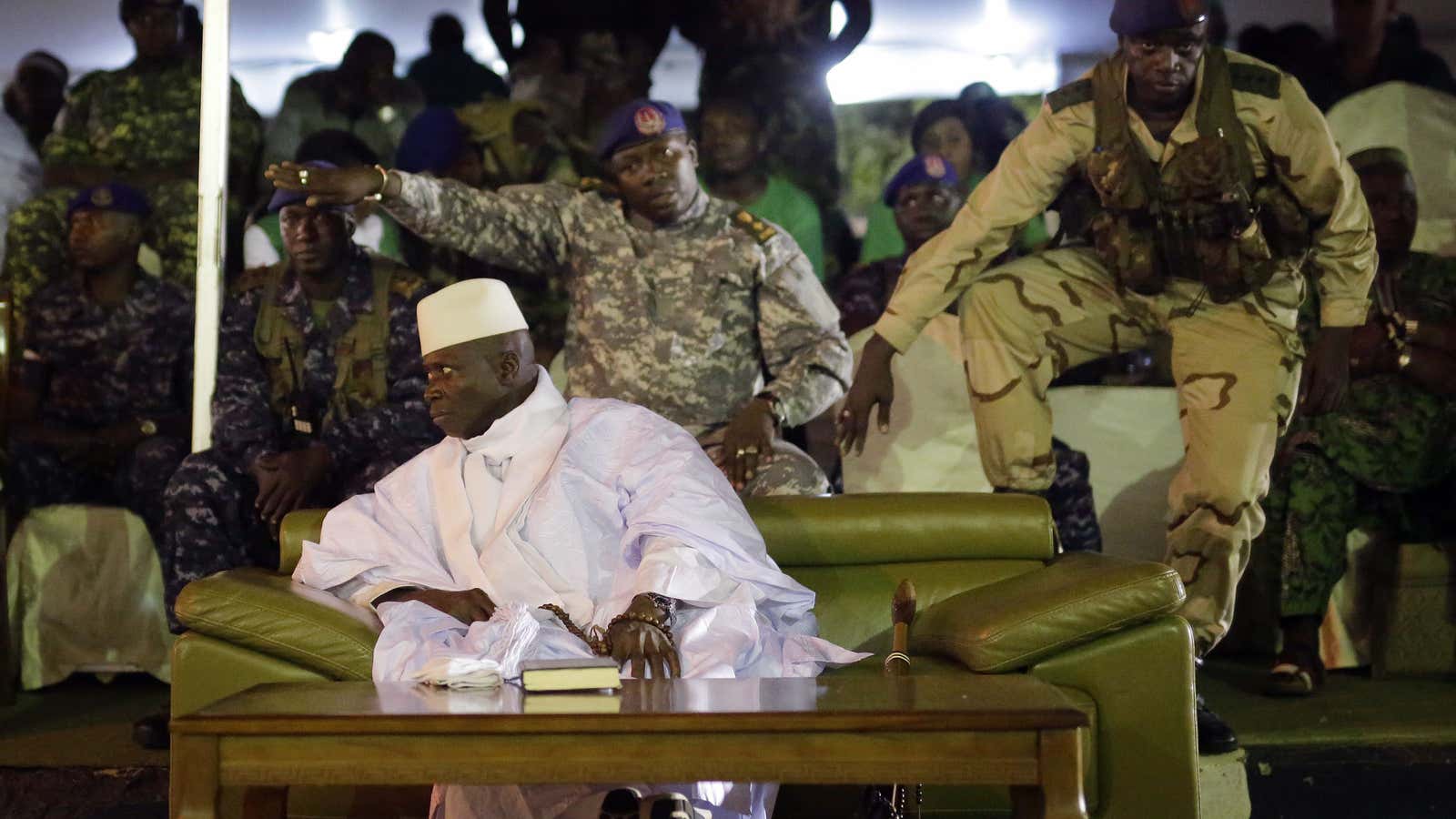Weeks after its presidential elections on Dec. 1, the future of The Gambia’s presidency remains uncertain.
Yahya Jammeh, the country’s autocratic leader of more than two decades, rejected the results of the elections which saw Adama Barrow, a real estate developer with no prior political experience, win the vote. Jammeh’s rejection came just days after he’d accepted them and made a concession call to Barrow live on state TV.
To overturn the results, Jammeh has filed a legal petition alleging the election was sullied by irregularities despite claiming the country’s marble-based voting system was “fraud-proof” before the polls.
In the wake of all this there has been intense regional and global pressure to get him to step down, yet Jammeh insists he will stay in office.
In a state television broadcast, Jammeh dismissed the visit by a delegation from Economic Community of West African States (ECOWAS), led by the presidents of Liberia, Nigeria, Sierra Leone and Ghana, as a mere “formality”.
“I am not a coward. My right cannot be intimidated and violated,” Jammeh said. “This is my position. Nobody can deprive me of that victory except the Almighty Allah.” Though often portraying himself as a devout Muslim, Jammeh has also ignored calls from the Organisation of Islamic Cooperation (OIC), a 57-member organization which The Gambia is a part of, to “fully respect the results” of the elections.
In the meeting with the ECOWAS delegation, Jammeh claims he’d been asked to step down and leave the country to avoid an interference in the country’s democratic process but the 51-year old did not take kindly to the request. “This country has been independent since 1965,” he said addressing members of the Africa Bar Association. “Who are they to tell me to leave my country?”
Should diplomatic talks fail, ECOWAS says it could take up the option of military action to force Jammeh to step down but the Gambian president insists he’s ready for the challenge. “What are they waiting for? I am a man of peace but that does not mean that I will not defend my country…courageously, patriotically and win.”
For its part, Gambia’s victorious opposition is also taking measures to boost the chances of The Gambia’s first ever peaceful transition of power. A spokesman for the opposition coalition says president-elect Barrow does not plan to prosecute Jammeh after taking office and will instead treat him “like a former head of state and would consult him for advice.” That toned-down rhetoric pales in comparison to soundbites from the coalition soon after the election when it promised to prosecute Jammeh “within a year” and prevent him from leaving the country.
